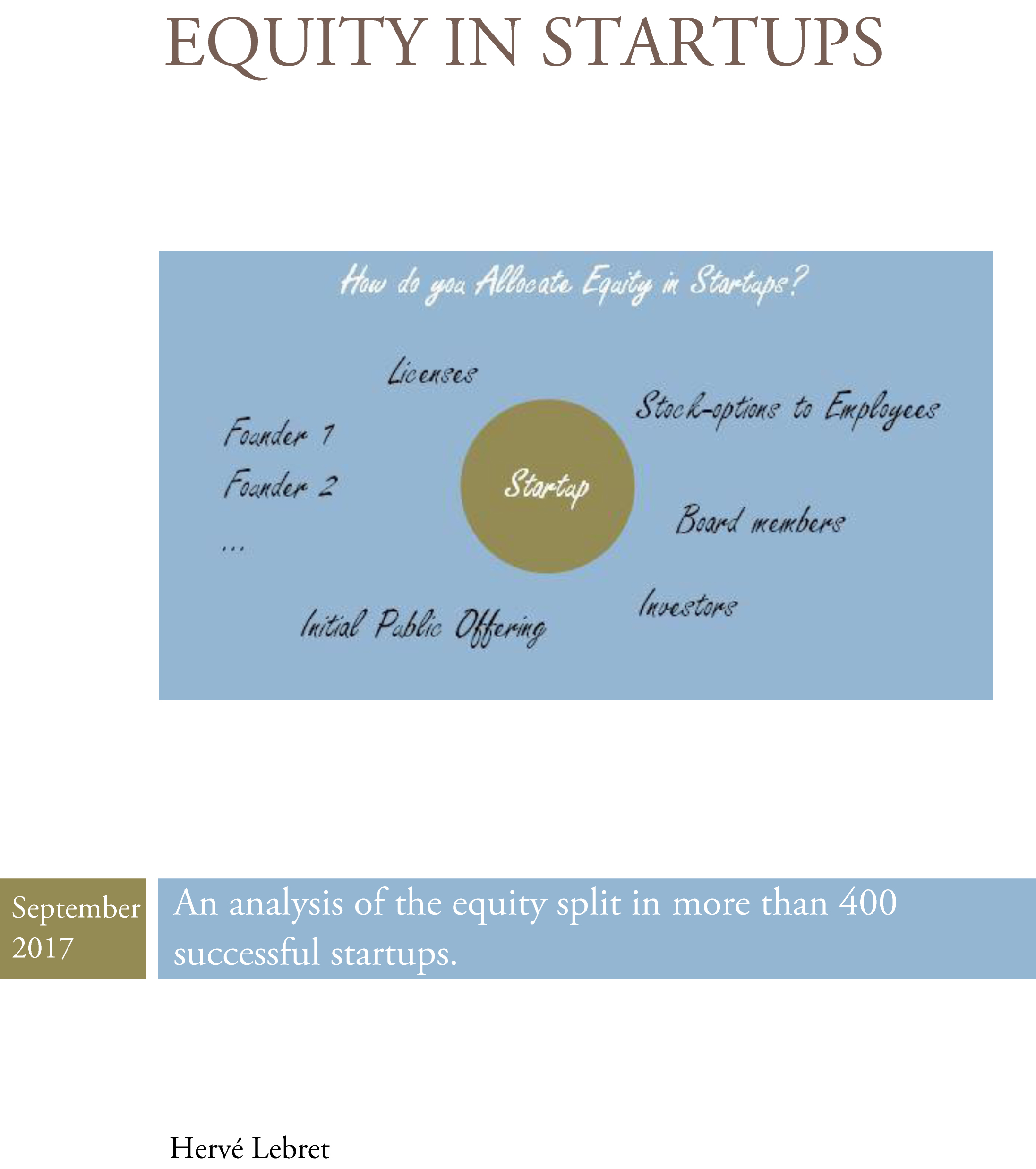This is the third short report I publish this summer about startups. After Startups at EPFL and Stanford and Startups, here is (I hope) an interesting analysis about how equity was allocated in 400 startups, entitled Equity in Startups (in pdf). Here is the description of the report on its back page: Startups have become in less than 50 years a major component of innovation and economic growth. An important feature of the startup phenomenon has been the wealth created through equity in startups to all stakeholders. These include the startup founders, the investors, and also the employees through the stock-option mechanism and universities through licenses of intellectual property. In the employee group, the allocation to important managers like the chief executive, vice-presidents and other officers, and independent board members is also analyzed. This report analyzes how equity was allocated in more than 400 startups, most of which had filed for an initial public offering. The author has the ambition of informing a general audience about best practice in equity split, in particular in Silicon Valley, the central place for startup innovation.
I will let you (hopefully) discover this rather short report which could have been much longer if I had decided to analyze the data in detail. I will just right here my main results. A simple look at data shows that at IPO (or exit) founders keep around 10% of their company whereas investors own 50% and employees 20%. The remaining 20% goes to the general public at IPO . Of course, this is a little too simplistic. For examples founders keep more in Software and Internet startups and less in Biotech and Medtech. There could be a lot more to add but I let the reader focus on what possibly interests her.
Additional interesting points are:
– The average age of founders is 38 but higher in Biotech and Medtech and lower in Software and Internet.
– It takes on average 8 years to go public after raising a total of $138M, including a first round of $8M in VC money.
– On average, companies have about $110M in sales and are slightly profitable, with 500 employees at IPO time. But again there are differences between Software and Internet startups which have more sales and employees and positive income and Biotech and Medtech startups which have much lower revenue and headcount and negative profit.
– The CEO owns about 3% of the startup at exit. This is 4x less the founding group and depending when she (although it is too often a “he”) joined it would mean up to 20% close to foundation (assuming the founders would keep 80% and allocate the delta to the CEO)
– CEOs are non-founders in about 36% of the cases, more in biotech (42%) and Medtech (35%) than Internet (31%) and Software (25%), more in Boston (48%) than Silicon Valley (43%) .
– The Vice-Presidents and Chief Officers own about 1% and the Chief Financial around 0.6%.
– Finally, an independent director gets about 0.3% of the equity at IPO. If we consider again that the founders are diluted by a factor 8x from their initial 100% to about 12%, it means a director should have about 2-3% if he joins at inception.
– In the past universities owned about 10% of a startup at creation in exchange for an exclusive license on IP. More recently, this has been more 5% non-diluted until significant funding (Series A round).

